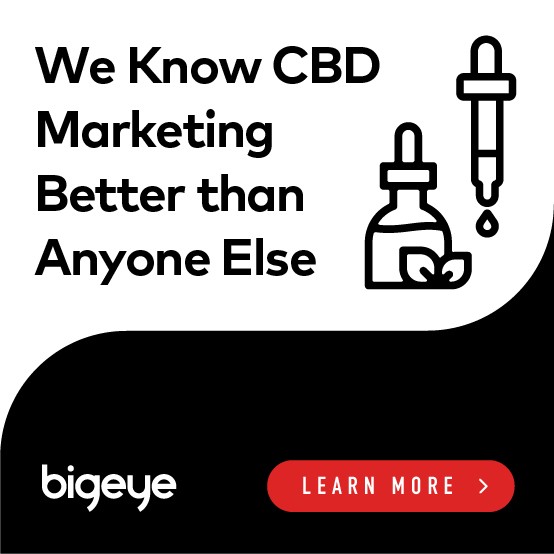
Intelligently mapping a CBD marketing plan is one thing, but tackling CBD and diving into the raging sea of DTC can be difficult.
What happens when a massively popular product category meets a scorching hot sales method? We’re about to find out, as CBD goes DTC. New CBD brands and CBD advertising agencies are moving to the Direct to Consumer model, as they seek to leverage first-party data to power their CBD marketing plan efforts.
Additionally, as we’ll see below, the CBD product category is a natural for the DTC model, as it allows consumers to access these products in a way that many find preferable to conventional retail settings.
The brands pioneering the CBD / DTC connection
CBDistillery, which sells hemp-derived products (gummies, creams, drops, etc.) uses a model that falls somewhere between wholesale and direct, selling online-only through its dedicated e-commerce portal. This allows CBDistillery to capture first-party data, which is critically important in a CBD marketing plan.
Another CBD brand, Feals, sells CBD products DTC by emphasizing two key elements: Consumer education and a subscription service. The subscription model has grown enormously in recent years (800% from 2014 to 2017) and has been a key driver of the DTC model.
Consumer education, on the other hand, is critically important for CBD brands selling DTC. Why? Because many consumers are still wary about the CBD / cannabis link and do not understand that CBD is not psychoactive like marijuana.
Even for consumers who understand this distinction, many are concerned about not having sufficient knowledge to dose correctly. These concerns, obviously, are heightened when products are delivered to your home in a box – there is no friendly staffer at a store or dispensary to help.
Feals addresses this issue by providing easily measured “flights” (essentially dosages) of CBD products and access to educational information and concierge-style customer service. Consumers can call Feals’ CBD hotline to receive additional guidance. This allows consumers to enjoy the convenience of DTC without worrying about misusing the products they are purchasing.
Why DTC and CBD are well-paired
The DTC model fits well within the CBD space for a variety of reasons. First, some consumers still believe CBD products carry a stigma, and they prefer to purchase CBD products discreetly rather than publicly. This mindset is likely to change in the coming years, as CBD products become routinely sold at every CVS and Walgreens in the United States.
Second, consumers use CBD products to treat anxiety and sleep disorders as well as improve daily skin and beauty regimens. What do these things have in common? They all lead to daily or near daily consumption – something that is ideal for a DTC subscription business.
Third, while CBD use is pervasive in large cities, in smaller communities the products are much less accessible. The DTC model helps narrow this availability gap, helping serve the ever-growing demand for CBD products. Those who live in smaller communities don’t have to worry about a lack of local retail options, or the possibility of a greater stigma surrounding CBD use.
Getting CBD marketing right
While CBD and DTC have extraordinary potential when paired, brands need to be cognizant of the challenges associated with a CBD marketing plan. A patchwork of regulatory rules limit what can and can’t be said. Additionally, major ad platforms such as Google and Facebook do not allow CBD marketing at the moment, citing legal and regulatory concerns.
This means that brands need to exercise caution when considering elements such as product design and marketing messages. Failing to do so can bring action from the FDA, FTC, or other agencies.
About us
Our team of experts understands the myriad challenges of CBD marketing – and we can help you launch a creatively inspiring (and fully compliant) campaign. Do your marketing right by contacting us today to learn more.




